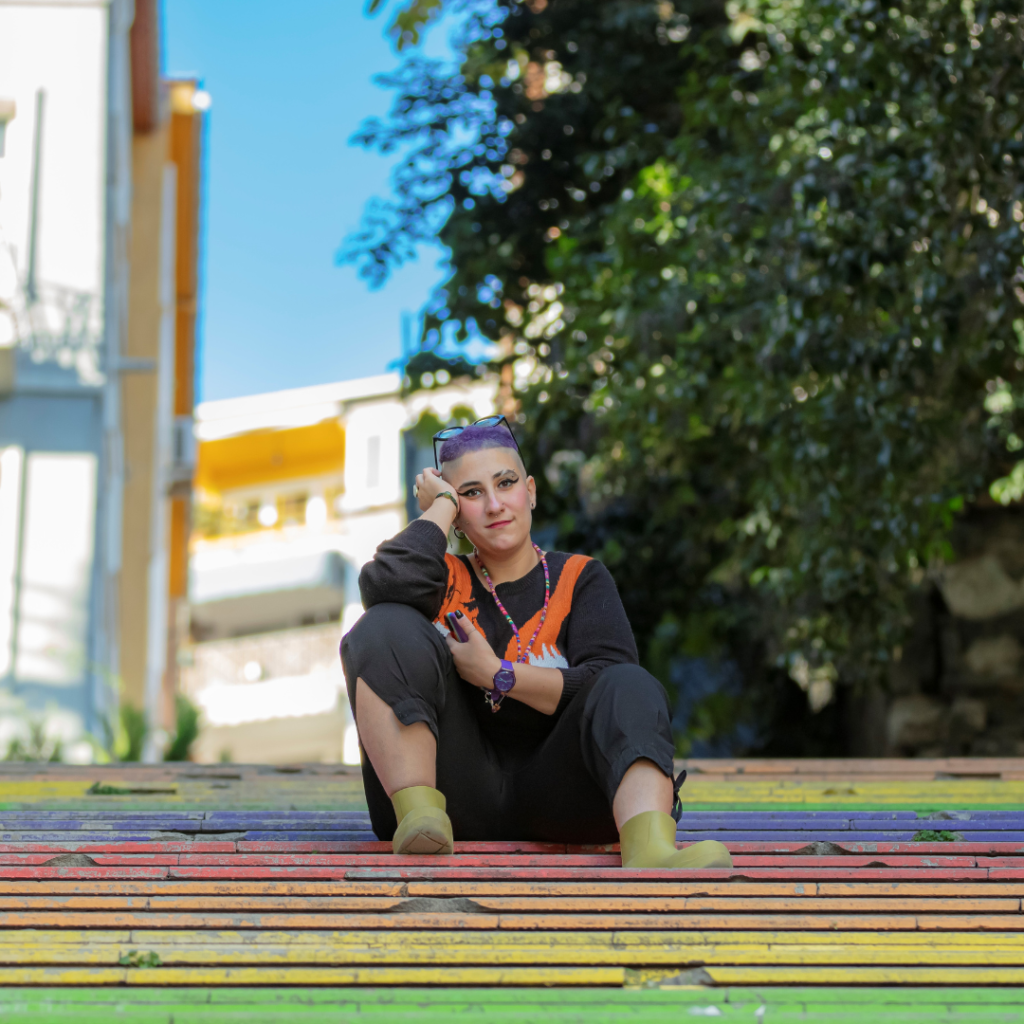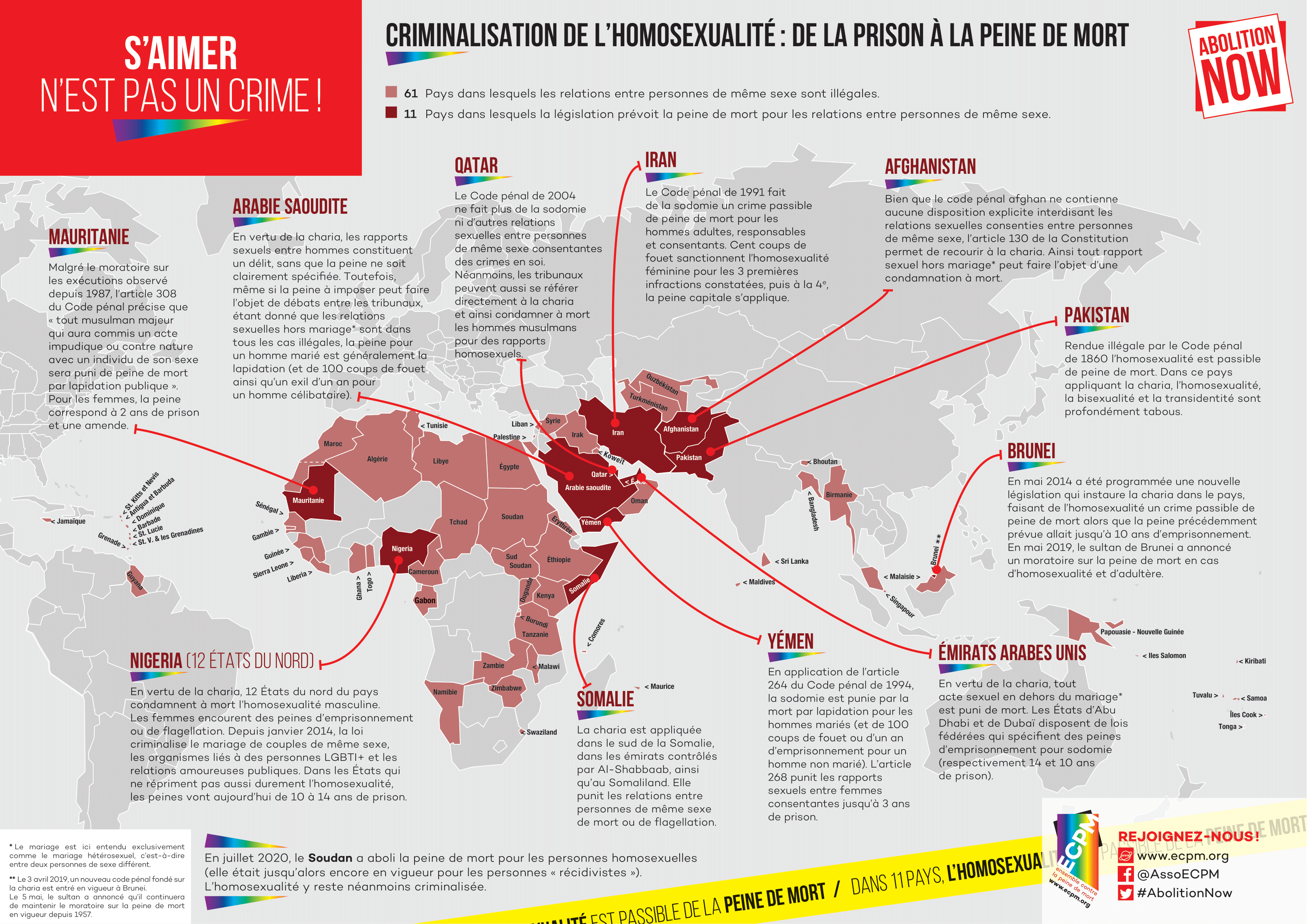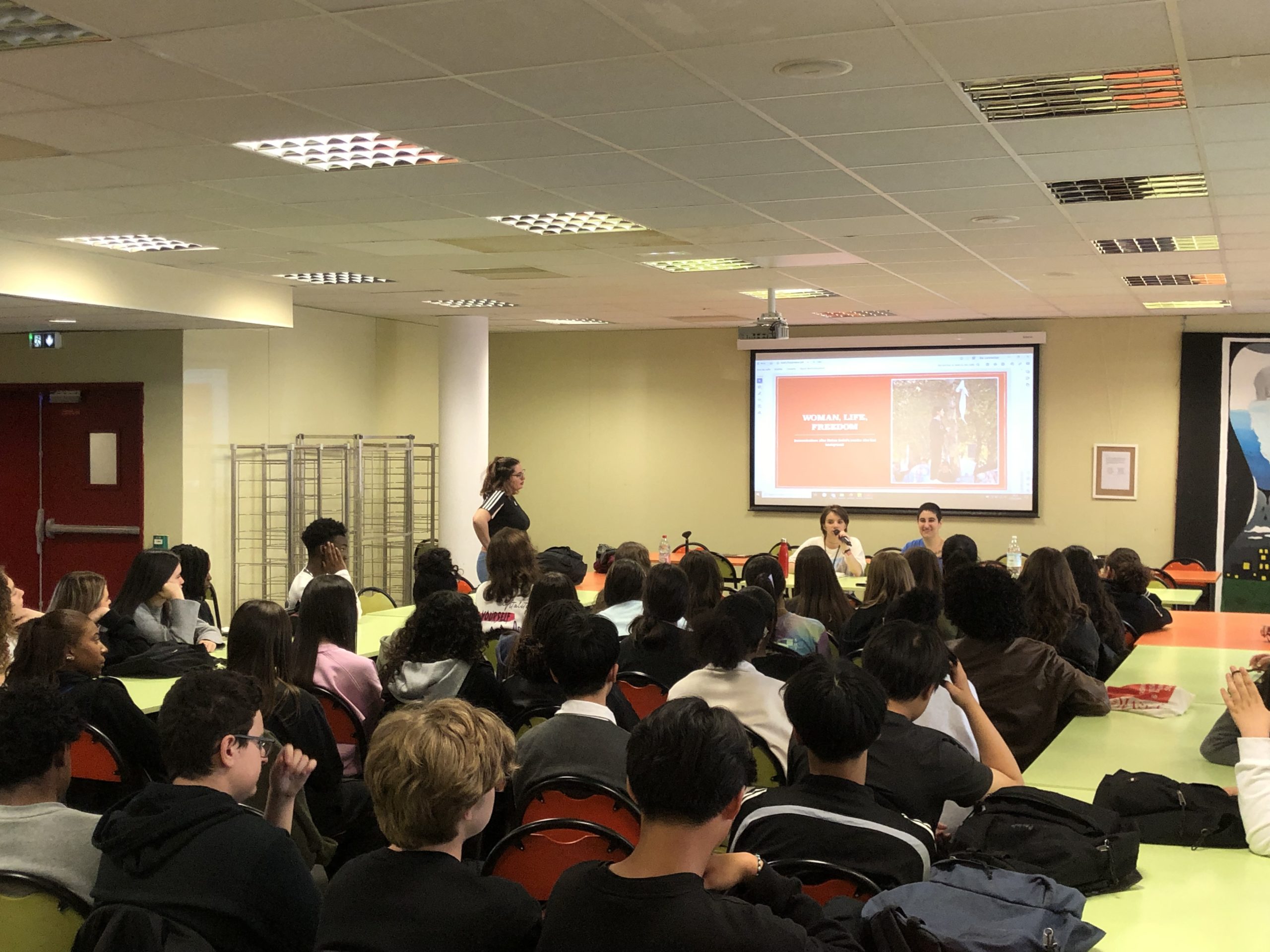
Can you introduce yourself briefly and explain how you would define your queer identity and what it means to you?
I am Asal Abasian, an Iranian journalist and queer feminist who was forced to leave Iran in October 2021 due to my activism. I first fled to Turkey and after 15 months of living there, I was awarded the Marianne Initiative Prize in France and have been living in Paris since January 2023. I worked as a journalist in Iran for over 10 years and was a member of the editorial team at Shargh newspaper. Now, I am trying to find my voice here in exile.
Queer identity, for me, signifies a struggle. A struggle against the oppression of individuals based on how they identify themselves. I disclosed my identity to help destigmatize it, and this is my way of fighting within the traditional and conservative society of Iran.
In a context of great repression, how is the struggle for human rights organized in Iran and within the Iranian diaspora?
The truth is that the real struggle happens on the ground and in the streets of Iran. We in the diaspora can only be the voice of the struggles within Iran. There is no fight outside Iran. For example, you cannot drink your coffee on the streets of Paris and fight against mandatory hijab in Iran. However, you in diaspora can reflect the resilience and struggle of the people within the country. I believe the main battleground is inside Iran, and our hope for change lies with the courageous people fighting there. Especially women and other minorities.
As a journalist, how do the infringements on freedom of expression in Iran affect your work and your ability to amplify the voices of marginalized individuals, especially those of LGBTQIA+ individuals and women?
Unfortunately, severe repression and censorship in Iran prevent many topics from being discussed in mainstream media. For instance, writing about issues related to the queer community is completely off-limits. Today, we see the struggle against this censorship primarily through individuals on social media. Many people fearlessly bring their true opinions to Instagram or Twitter. By fighting in their daily lives, they push back the boundaries of censorship. This is truly admirable.
Today, why is it important to integrate the issue of the death penalty into the queer and feminist struggles?
These two issues are completely intertwined. Under Islamic rulings and the laws of the Islamic Republic, the punishment for being a lesbian or gay is death. Therefore, in Iran, we have a “queer lives matter” issue, which might be hard to believe in the free world.
What messages would you like to convey to the public in France regarding human rights in Iran?
Perhaps the most important thing is not to believe the Islamic Republic’s propaganda about the lie of “freedom of expression in Iran.” Pay attention to the struggles of the people inside Iran and do not be deceived by the regime’s whitewashing of the situation.
What do you recommend for getting involved and supporting the fight for human rights in Iran to the best of one’s ability?
In my opinion, raising public awareness and advocacy are the best possible solutions. The solidarity of the French people with the struggles inside Iran, especially during the “Woman, Life, Freedom” movement, was incredibly encouraging.
To get to know more on our Love is Not a Crime Campaign, click below


